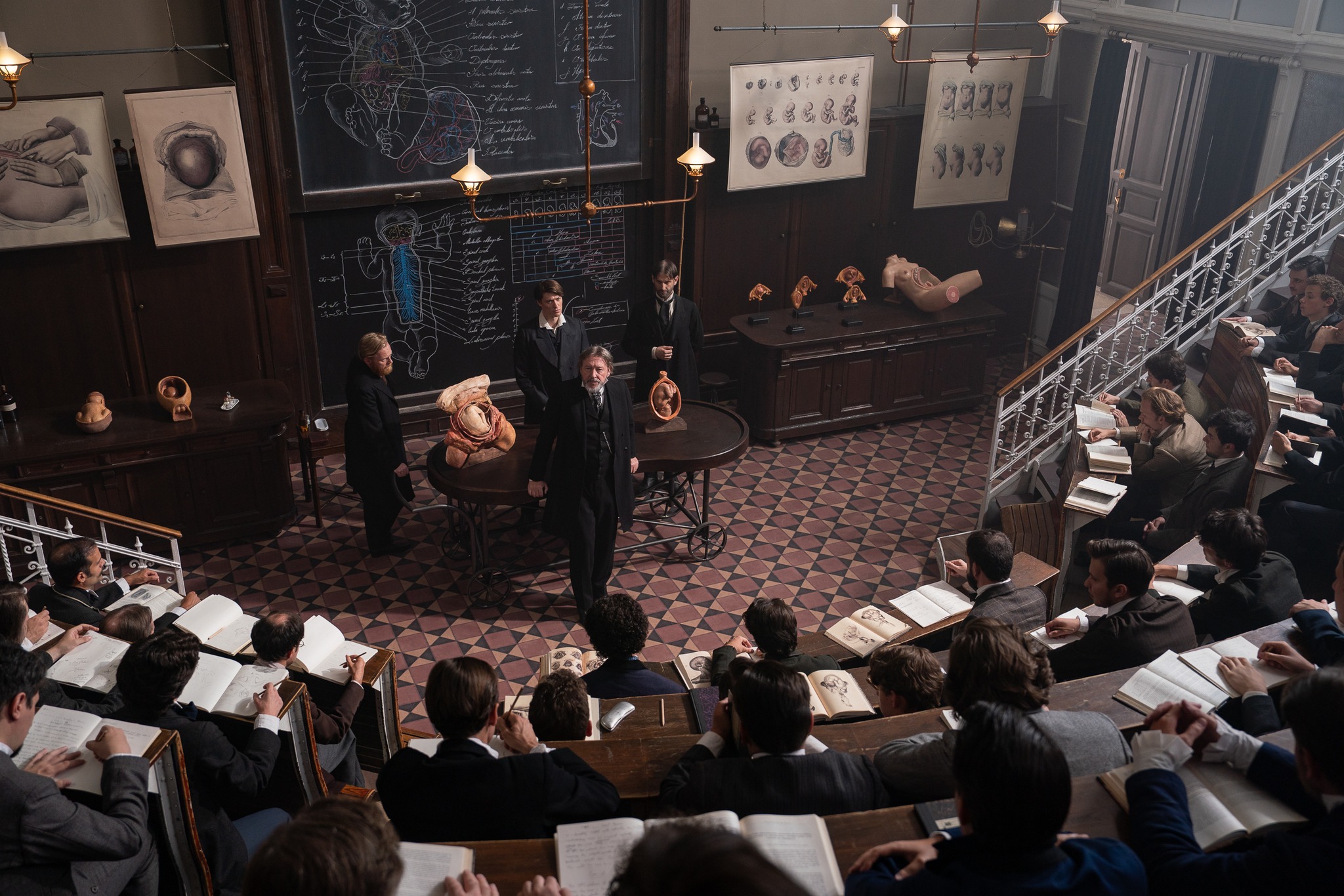Semmelweis (film by Lajos Koltai, 2023)
The ELTE–NFI University Film Club continues the series of screenings and discussions. We welcome university citizens from all faculties of ELTE.
Today, we remember Ignác Semmelweis as a legend, a man of courage and steadfastness, a man of both knowledge and justice. He is not known as the saviour of mothers for nothing. But in his own time he was seen in a very different light. The other Hungarian doctors he worked with in the obstetrics clinic in Vienna thought he was mad: he was not interested in the pleasures of the imperial city, he was just doing his job. The Austrian doctors thought him unbearably violent: he had only one goal in mind, the health of the mothers entrusted to him; and for the sake of this sacred cause he broke every rule and every barrier.
And for his boss, the head of the clinic, he was the living, unpleasant conscience: for if Doctor Semmelweis's theory was true, and the obstetricians were spreading the disease that had killed so many women, they were all murderers.
He had a midwife working alongside him, who saw in him what no one else did: a man who wanted love and reassurance. The film focuses on the year 1847, when a mysterious epidemic decimates the women giving birth in a clinic in Vienna. Doctor Ignác Semmelweis, defying all conventional theories, tries to conquer puerperal fever.
Date: 9 April 2025, 18.00
Venue: University Square campus (1053 Budapest, Egyetem tér 1-3. fszt., corridor next to the cloakroom)
Preview: https://www.youtube.com/watch?v=Dlgcc2bhj2o

Starring Miklós H. Vecsei, Katica Nagy, László Gálffi.
Guests of the post-screening discussion will be Lajos Koltai, Hungarian cinematographer and director, winner of the Kossuth and Béla Balázs awards, Balázs Maruszki, screenwriter of the film, Benedek Varga, director of the Semmelweis Medical History Museum, Library and Repository of the MNM. The institution also provided the location for several scenes of the film. Also Prof. Dr. Nándor Ács, obstetrician-gynecologist, director of the Department of Obstetrics and Gynecology II at Semmelweis University.
Due to the limited number of seats, pre-registration is possible at the following link:
https://ajk.elte.hu/content/semmelweis-koltai-lajos-filmje-2023.e.1849
Correspondence about the film club is welcome via eltenfi.filmklub@elte.hu.
The ELTE–NFI Filmklub on Facebook


